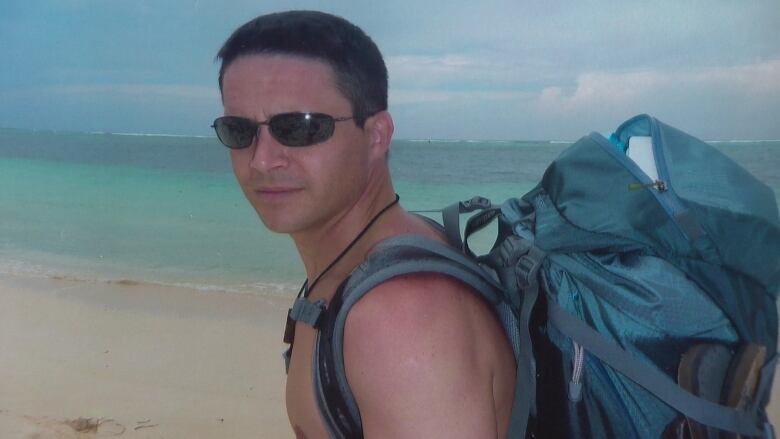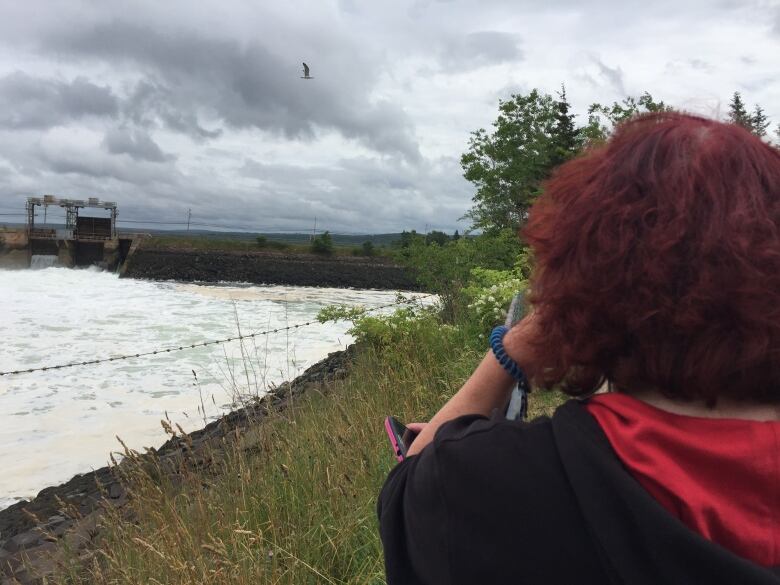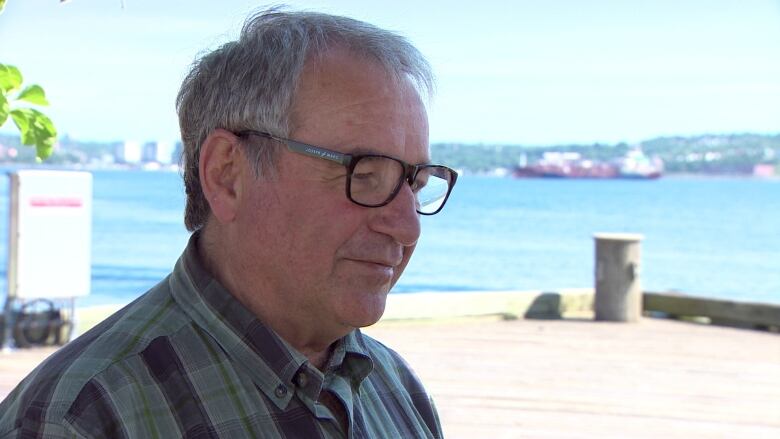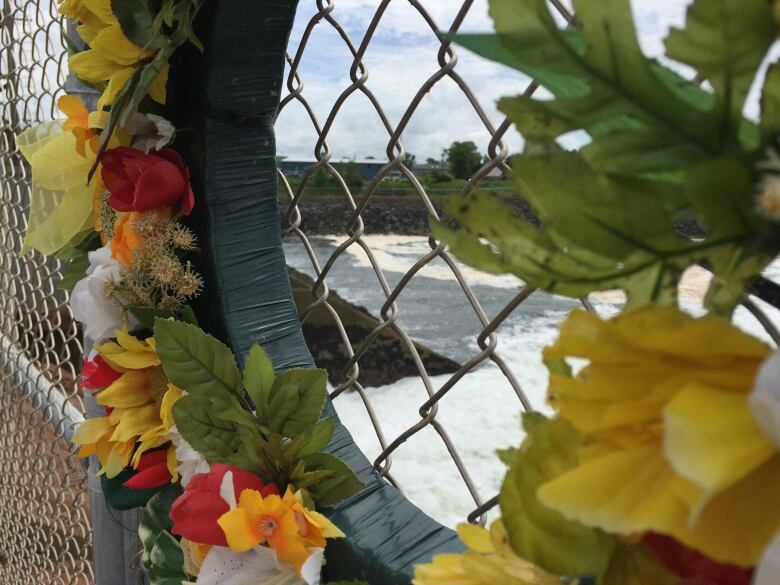No closure for family of diver killed at Nova Scotia tidal plant a year ago
Luke Seabrook's family on mission to prevent divers from dying on the job

The family of a Dartmouth man killed on the job at Nova Scotia Power's Annapolis Tidal Power Planta year ago isstill seeking answers about how and whyhis death happened.
Commercial diver Luke Seabrook, 39, died last July 15 while inspecting the dam's underwater gates. The generating station is located where the powerful Bayof Fundy tidesmeet the Annapolis River in Annapolis Royal.
"He didn't have a hope in hell, nobody would," said Angela Seabrook, Luke's mother, as she stared at the rushing water pouring out of the dam.
The Wasaga Beach, Ont.,woman travelled to Nova Scotia to see the plant for herself on the eve of the anniversary.
'I need to know'
"I have to find out what happened and why it happened before I can forgive," she said. "There might not be anybody to blame for this. It could just be an accident, but I need to know."

Luke Seabrook was carrying out the annual inspection of the gate as part of Paul's Diving Service Inc. It wasa job he'd done before.
His family hasreceived details from Jarvis DesRoche, the backup diver, who along with the diver supervisor, were providingsupport fromtheshore.
Within a minute or two of going underwater, Seabrooksignalled to come up. His support team couldn't pull him up but the line wouldn't budge, so they tied off his line in hopeshe wouldn't be dragged farther away.
"If Jarvis hadgone down, there would be two of them dead," Angela Seabrooksaid.
DesRoche had to wait about an hour for the tides on both sides of the dam gate to equalize before he could retrieve his friend's body.
Seabrook says her sonwas found stuckinthe gate, which wasn't fully closed,as it should have been. His helmet was wedged inthe gap.
The opening allowed the force of the world'shighest tides to surge through. The differential pressure on either side of the gate createsa powerful suction. That pressure can be in the tonnes.
In the diving world, that hazard iscalledDelta P, and it's one of the leading causes of death for occupational divers.
'I hope he didn't suffer'
Luke Seabrook was found with broken ribs and contusions to his head. His suit was ripped, his mouthpiece was loose.
"I don't know whether he died because his lungs were crushed or he drowned," Angela Seabrook said. She's still waiting for the autopsy report's officialcause of death. "All I know is I hope he didn't suffer."

For the last year, the provincial department of Labour has been investigating the workplace fatality. It typically takes two years before findings are released and charges, if warranted, are laid.
Seabrook's fear is thatanother diver could die on the job in the meantime.
Departmentdenies CBC request
CBC News has askedto see the department's stop-work and compliance orders slapped on Nova Scotia Power and Paul's Diving Service Inc. Those requests have been denied, and that decision is waiting to be reviewed.
Rejecting a request for labour departmentorders is unusual. Inpreviouscases, the department has provided the information to CBC News.
Nova Scotia Power has declinedan interview. And the dive support team members have not responded to an interview request.

'Things haven't changed'
Seabrook has enlisted the help of diving expert Stephen Donovan in her quest for answers. In the '90s, Donovan was a member of the working group that drafted Nova Scotia's diving regulations. He says he walked away from the group because it was split with infighting among different divinggroups that had competing interests. The end result, he says, was watered-down regulations.
"Things haven't changed from when I was diving in the Bay of Fundy in the middle of the '70s," said Donovan. "Yes, we have better equipment but we still are losing people."

Donovan finds it deeply troubling that LukeSeabrookwas likely killed because of a danger that is nothing new differential pressure at a dam.
He says he believes Seabrook's death waspreventable. It's high time, he says, for the diving community to make safety a priority.
"Very frustrating that changes haven't been made that I think should've been made."
'We feel forgotten'
The wait for information has been agonizing for Seabrook's widow, Sheryl. They were newlywedswhen Luke was killed.
His last text washaunting and sweet.
"Going to work with the changing tides. I love you, I'll talk to you soon," sherecalled.

The 36-year-old has tried to go back to work, but she's been unsuccessful.
Diving was a passion she shared with her husband, but nowshe can't go back in the water.
Onthis first anniversary of Seabrook's death, sheplans to go to the plant for the first time where she'll spend time in quiet meditation.
She'll find a wreath attached to a chain link fence surrounding the dam. It's the only hint of thetragedy.

But there will be no closure.
"I think that's something that can only come after the full investigation is disclosed to us, if and when," she said.
"We feel forgotten."












_(720p).jpg)


 OFFICIAL HD MUSIC VIDEO.jpg)
.jpg)



























































































